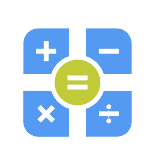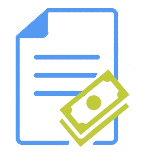
The topics covered under the subject Financial Accounting are being designed and developed by Knowledge Horizon with an objective to demystify the concepts without any prior knowledge with the help of our innovative, simple and easy to understand instructional design strategy. These topics will equip you with the knowledge and tools to apply them in your field and functional areas. The idea is to make the concepts available to you as simply simple, easily accessible and enjoyable which can be used by you as quick reference learning material with the help of which you can fill your knowledge gap on Accounting easily and apply it as per your specific requirements.
This course is specially designed for the final year students of MBA/PGDBA/MCA/CA/CS/ICWAI/ BCOM/ BBA/I.Com and entrepreneurs and working professionals.
The Online Self-learning Course includes access of – Videos (13) + Job Aids (2 Printable and Downloadable) + Assessment Questions (39): Learning Seat Time: 70 minutes (Estimated)

Inter-relationship between Financial Statements
- Explain how a transaction affects the income statement, balance sheet and cash flow statement
- Identify the interrelationship between income statement, balance sheet and cash flow statement






